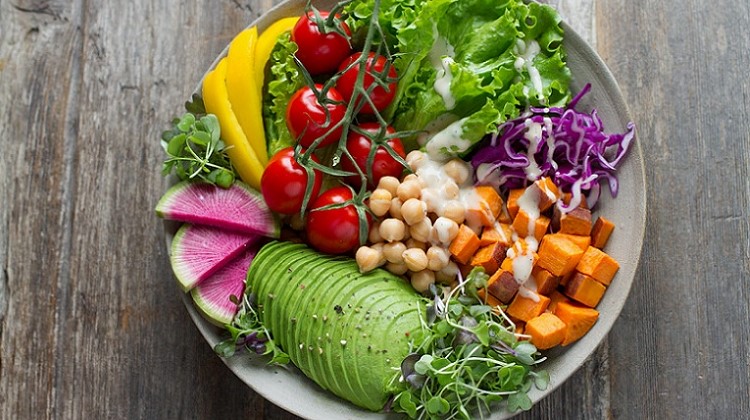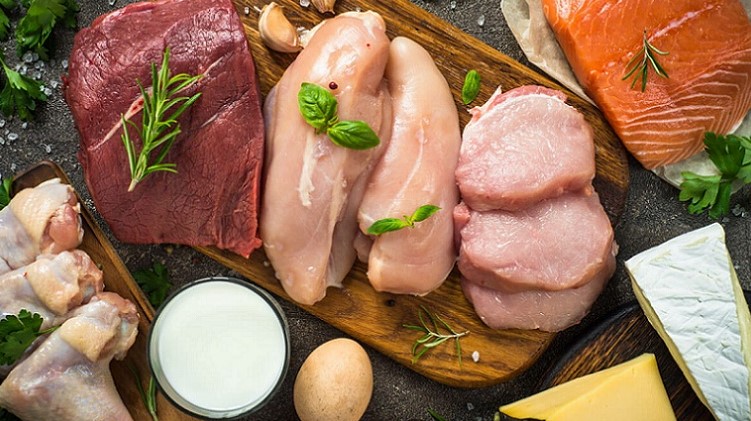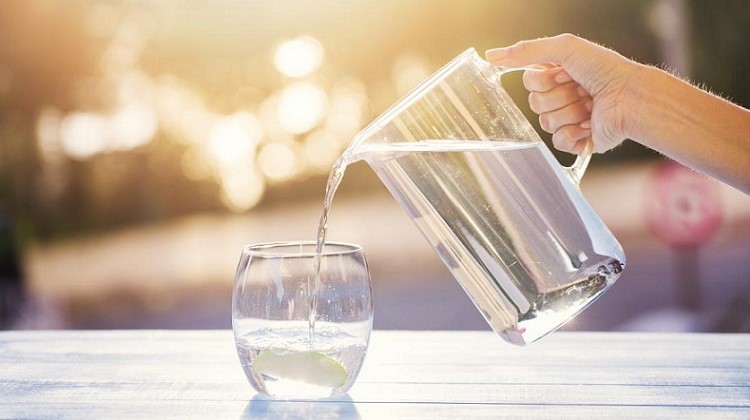Without being told, you should know as a bodybuilder that your diet is just as important as your training program, and supplementation. No matter what your bodybuilding goals may be, your diet is often the difference between success and failure.
Without a well-rounded nutrition plan, you may find it hard to improve your body composition despite putting in the effort required in the gym. Your routine workout sessions alone will not give you the body transformation you may be desperately yearning for.
You will also need to put in the hard work in preparing a customized dietary plan that would help promote fat loss or lean muscle gains, as the case may be.
In this post, our team of nutrition experts have put together seven smart ideas to eat healthy in order to help you in successfully achieving your cutting and/or bulking goals.
Why Do You Need These Diet Tips?
A typical diet comprises the three macronutrients of carbohydrates, proteins, and fats. You also have micronutrients with a variety of minerals and vitamins.
As a beginner, you need to have a basic understanding of the importance of these nutrients to your overall health and indeed your bodybuilding needs. For example, protein is essential for building muscle mass as well as repairing damaged muscle tissue while fats and carbohydrates supply your muscle tissues with the daily energy requirement needed for your training.
The seven nutrition tips in this post will help to ensure that your dietary plan is in-sync with your training program, as this is one of the major ways of achieving a body transformation that you can be proud of.
While other factors such as your age, genetics, sex, and health status also play a key role in determining the level of success that you can achieve in your body transformation efforts, your nutrition is certainly one of the major factors worth your time, effort and undivided attention.
7 Healthy Eating Tips for your Body Transformation
Here are the seven healthy eating tips to help you build lean muscle while also shedding fat in the process.
#1. Consume Less Calories On Rest Days
One of the most common mistakes of bodybuilding beginners has to do with calorie management. Many beginners tend to consume the same or more calories on their rest days as they would on training days.
Your training days are when you engage in high-interval intensity training (HIIT), resistance, strength, or weight training to help build muscle mass. It is on these days that you need more calories to help fuel and repair your muscle tissues.
However, on your rest days you are not engaged in any HIIT or weight training, so you do not need the extra calories for fuel. If you consume the same or more calories during your recovery days, you could be setting yourself up for failure, as you could end up increasing your body fat.
One way of ensuring that your calorie count is cut on your rest days is to subtract 500 calories from whatever your calorie count is on your training days. So for example, if your training day calorie intake is 2,750 calories, your calorie count on rest days would be 2,250 calories.
Note that you can get most of your daily calories from protein and carbohydrates. You can chat with a nutritionist if you are unsure of the amount of calories that can be derived from the food sources available to you.

#2. Be Mindful of Your Food Choices
Eating natural healthy meals is always advisable at all times and more so whenever you are running a training program. However, just because you need to eat clean naturally sourced foods during training does not mean that you should consume foods that you may be allergic to or that you are not necessarily fond of.
Your nutritionist may prepare a customized dietary plan, but you should be able to let him or her know about foods that do not agree with your body for one reason or another.
Your dietician or nutritionist would be in a better position to recommend alternative food sources that would give you as many calories as those foods that you may not like or that your body may be prone to exhibiting an adverse reaction to when consumed.
#3. Treat Yourself to a Treat Every Now and Then
While eating clean should be your priority for 90 percent of the time that you are running your training program, you should also be flexible enough to give yourself a treat from time to time.
You should try as much as possible to look forward to your training as well as meals. Monotony is the last thing you want while training and maintaining a dietary plan, as this could make you lose interest and turn your workouts into a chore.
While sticking to natural food sources is one of the best ideas to eat healthy, you should not be too rigid, as to not allow yourself to indulge in a snack from time to time.
#4. Protein Helps Boost Satiety
If you want to shed excess body weight and fat while at the same time building muscle mass, you can do so by increasing your protein consumption.
Protein is well-known to increase your level of satiety which simply means you will be less famished during the day and consume less food.
With less calorie intake, your body fat mass will decrease while your increased protein consumption will stimulate protein synthesis in your skeletal muscle tissues for quicker muscle mass growth, tissue regeneration, and repair.
As a matter of fact, a research done in 2005 and available in “The American Journal of Clinical Nutrition” suggests that health adults will experience a significant rise in their level of satiety if they increase their daily protein consumption from a rate of 15 percent of their overall daily calorie count to 30 percent of their daily calorie intake. You can consume between 20 and 30 grams of natural food source protein during each of your daily meals.
To ensure that you do not chow-down on meat-based protein only, one healthy eating advice would be to include plant-based protein foods to your meals. Plant-based protein foods like beans, lentils, soy, and tempeh would also be agreeable to vegan or vegetarian bodybuilders.

#5. Healthy Dietary Fat Helps to Burn Body Fat
There are many healthy diet tips for burning body fat, but none causes many beginners to raise their eyebrows as the fact that healthy fats could actually promote fat loss.
Healthy fats like omega-3 fatty acids can help to boost your metabolic rate and cause your body heat to increase in a process known as thermogenesis.
As your body heat increases, your body reacts swiftly to return your body temperature to a normal state (homeostasis) by stimulating your sweat glands into producing more sweat.
Your excessive perspiration will help to cool down your body and the continuous heightened body temperature and cooling down tempo will trigger lipolysis or the fat-burning process.
So as far as ideas to eating healthy goes, consuming dietary fats in the form of seeds, nuts, fibrous veggies, olive oil, avocado, berries and other low-glycemic fruits, and fish oil will not only boost metabolism, and encourage fat burning, but also regulate cortisol (stress) hormone levels and significantly boost cardiovascular health.
#6. Gradually Reduce your Daily Calorie Count
It is important to avoid crashing your daily calorie count during a training program as a way of trying to shed weight and lose excess fat. If you do this, then you are more than likely to experience hunger pangs on a more frequent basis.
For example, crashing your daily calorie count from 2,750 calories to 1,000 calories is a bad idea and apart from making you feel hungry, it could actually be detrimental to your mental health, focus, and appetite to continue training.
If you need to cut-down on your daily calorie count, you should do so gradually. You could drop your calorie count from say 2,750 to 2,550 calories while at the same time revving up the intensity of your daily workout routine. By doing so, you will be able to burn more calories and body fat to improve your body composition.
#7. Always Maintain a Healthy Level of Hydration
The seventh tip in this post is the last, but certainly not the least of our ideas to eat healthy. Staying hydrated at all times is very important to not just your training program, but also your overall health.
Drinking clean water will aid quick metabolism, prevent constipation, and boost your overall energy level. Consuming sufficient amounts of water will help prevent fatigue which is the main cause of poor concentration during training.
Poor focus during weight training can be risky as you will be more susceptible to injuries. But not everyone can tell if they are dehydrated or not, and many people often leave having a drink of water until it’s too late to do so.
You can tell if you are on the verge of dehydration by a simple urination test. If the color of your urine is tending towards a yellowish-orange color that is akin to apple juice, you are certainly dehydrated at this point and need to drink water to stay hydrated.
However, if your urine color is like lemonade, then you are adequately hydrated. You should avoid drinking alcohol, coffee, and even energy drinks to stay hydrated, as these drinks actually do the exact opposite.
If you find drinking ordinary water all the time to be boring, you can try flavoring your water with slices of lemon or BCAAs.
Note that if you are using supplements like multivitamin, the riboflavin compound in the supplement may cause your urine to appear as neon yellow in color even though you are properly hydrated.
Ideally, you should monitor the number of times you go on a toilet break, and urination once every two hours or so, should be a healthy start.

Conclusion
The ideas to eating healthy in this article will help you to start off on the right path towards achieving your bodybuilding goals of losing fat and gaining lean muscle mass. Remember to consult with a qualified dietician or nutritionist beforehand, and don’t forget to mention those foods that you are allergic to, or that your body may not be too tolerant of.
Finally, stay hydrated at all times and vary your daily meals with different forms of plant protein. You can get in touch with our resident IFBB PRO and personal coach for free if you need more guidance on developing a personal dietary plan for your training program.


